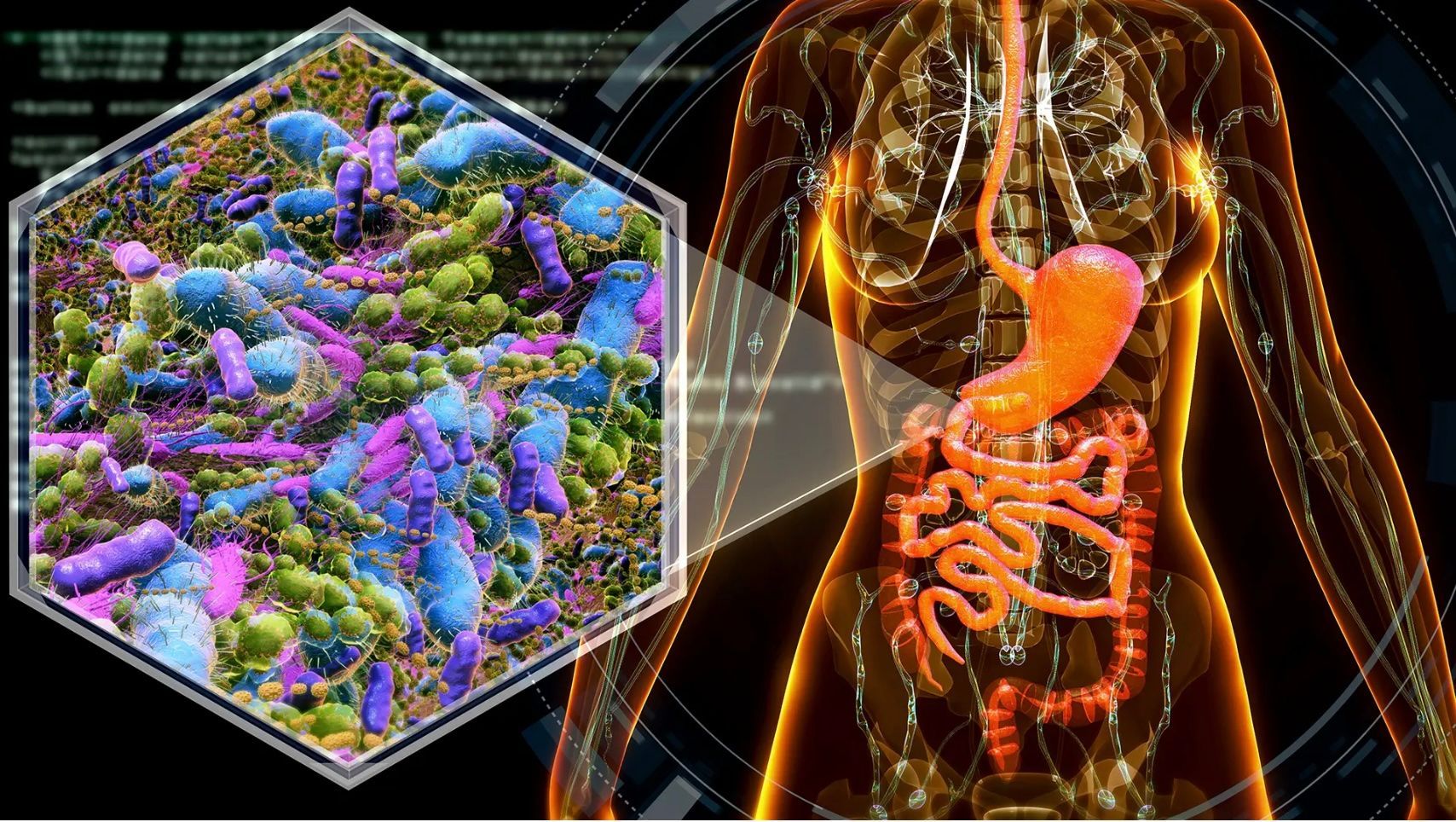Unveiling the Human Microbiome: A Core Pillar of Wellness
By Dr. Adam Abodeely, MD, FACS, FASCRS, MBA, CEO of Coral Cove Wellness Resort
March 27, 2025
Over the years, I’ve cultivated a deep passion for advancing GI health through science-backed practices that enhance the human microbiome, a vital ecosystem of microorganisms essential to wellness. As a board-certified surgeon in General and Colorectal Surgery, I specialize in treating GI conditions like cancers and inflammatory bowel disease, many linked of which are linked to abnormal intestinal bacteria and other organisms which make up the microbiome. My work integrates medical cannabis, holistic practices, supplements, and lifestyle changes, offering alternatives to conventional pharmaceuticals. Serving on the New York State Medical Cannabis Advisory Council and chairing the Committee for Cannabis for IBD, I’m committed to developing natural, effective solutions to improve both intestinal and overall health.
It’s nearly impossible to achieve optimal health without a thriving intestinal microbiome. Beyond its implications for GI-related conditions, a disrupted microbiome is increasingly associated with conditions such as obesity, diabetes, and mental health challenges. While this blog offers a broad overview of the microbiome’s monumental impact on health and wellness, I encourage you to stay connected as I’ll regularly share valuable tips and insights on this rapidly evolving topic.

What Is the Microbiome and Why Is It Important?
The microbiome consists of the genes within the trillions of microorganisms like bacteria, viruses, fungi, and archaea that live in your body. While they reside in various places like the mouth, skin, and lungs, the gut microbiome is the largest and most studied. Scientists are discovering that these microbes do far more than help with digestion. They influence immune function, hormone regulation, mental health, and energy production.1,2
Remarkably, your microbiome is unique, much like a fingerprint. Environmental factors, diet, lifestyle, and even your mother’s mode of delivery (natural birth vs. cesarean) shape its development early in life. However, the microbiome continues to evolve throughout your life, influenced by your choices and surroundings.3
How Your Microbiome Supports Health
Your microbiome acts as a key regulator of many bodily systems. Here’s how it supports your well-being:
• Immunity Support: The gut microbiome is part of the first lines of defense against harmful substances we may eat. The microbiome helps train your immune system to distinguish between harmful invaders and your own healthy cells. It also helps control inflammation, a root cause of many chronic illnesses.
• Mental Health Connection: The gut microbiome communicates with the brain through the gut-brain axis, which impacts mood, memory, and stress levels. Several mental health conditions and neurological conditions are linked to uniquely abnormal microbiomes.
• Metabolic Efficiency: Enzymes produced by gut microbes assist in breaking down complex molecules in food so your body can absorb nutrients effectively. Certain microbes even influence how your body stores fat and regulates blood sugar.
• Vitamin Production: Beneficial bacteria synthesize essential vitamins like B12, B6, and K, playing a role in maintaining energy, red blood cell production, and bone health.
The balance within your microbiome ensures these processes run smoothly. However, when that balance is disrupted, it can lead to what is called “dysbiosis.”

When Balance Goes Awry: The Microbiome and Disease
Research now highlights the profound connections between microbiome imbalances and various diseases, both inside and outside the gut. Dysbiosis has been linked to a range of health issues , including:
- Digestive Conditions: Disorders like inflammatory bowel disease (IBD), irritable bowel syndrome (IBS), and colorectal cancer often involve shifts in gut microbiome composition.
- Metabolic Disorders: Conditions like obesity, type 2 diabetes, and non-alcoholic fatty liver disease (NAFLD) show significant associations with dysbiosis. For instance, some harmful bacteria can increase fat storage or disrupt glucose metabolism.
- Mental Health Challenges: Microbial disturbances have been correlated with anxiety, depression, and even cognitive decline, showing the microbiome’s reach into neurological health.
- Chronic Diseases: Dysbiosis can drive systemic inflammation, which is a contributing factor for cardiovascular disease, arthritis, and even certain cancers.
- Weakened Immunity: A compromised microbiome reduces your body’s defense against pathogens, leaving you more vulnerable to infections and cancers.
The evidence is clear—not only does your microbiome affect your physical health, but it also plays a critical role in your emotional and mental well-being.4,5
Factors That Influence Your Microbiome
A variety of factors can disrupt your microbiome, including external influences and daily habits. Here’s what to watch out for:
- Poor Diet: A diet high in processed foods, sugar, and artificial additives can promote harmful bacteria, while a lack of fiber deprives beneficial microbes of essential nutrients.
- Antibiotics: While life-saving, antibiotics can wipe out both harmful and beneficial bacteria, with recovery potentially taking years.
- Stress: Chronic stress affects your gut-brain communication, triggering inflammation and altering microbiome composition.
- Lack of Sleep: Poor sleep habits impact your gut health, as your microbiome follows a circadian rhythm influenced by your body’s sleep-wake cycle.
- Toxins: Exposure to certain environmental pollutants and chemicals in food or water can harm your microbiota.
Fortunately, there are simple but powerful steps you can take to restore and maintain a healthy microbiome.

Nourishing Your Microbiome for Optimal Health
At Coral Cove Wellness, our goal is to provide you with tools to care for your microbiome, unlocking the potential for greater vitality and wellness. Here’s how you can nurture a thriving microbiome:
- Eat a Diverse Diet Rich in Fiber: Include plenty of fruits, vegetables, whole grains, nuts, and seeds. These plant-based foods fuel beneficial bacteria and enhance diversity within your microbiota.
- Probiotics and Fermented Foods: Items like yogurt, kefir, sauerkraut, miso, and kimchi introduce beneficial bacteria into your gut.
- Prebiotics: Foods like garlic, onions, asparagus, and bananas act as prebiotics, feeding the good bacteria in your gut.
- Limit Processed Foods and Sugars: A diet rich in natural, wholesome ingredients supports a balanced microbiome.
- Mind Antibiotic Use: Only take antibiotics when prescribed, and consider a probiotic supplement after finishing a course.
- Exercise Regularly: Physical activity impacts gut health, promoting beneficial bacterial diversity.
- Get Restorative Sleep: Aim for 7-9 hours of quality sleep each night to align with your microbiome’s natural rhythms.
- Manage Stress: Techniques like meditation, yoga, and deep breathing can reduce chronic stress and support gut health.
- Spend Time in Nature: Exposure to diverse environments can enrich your microbiota.
- Stay Hydrated: Drinking water supports digestion and microbiome function.
Incorporating These Steps at Coral Cove Wellness
At Coral Cove Wellness, we weave these principles into our programs to support microbiome health. Our whole-food meal plans feature nutrient-dense ingredients tailored to nurture your gut flora, while activities like yoga and meditation help harmonize your mind-body connection. Whether you’re enjoying our tranquil setting or indulging in rejuvenating spa treatments, every experience is designed to optimize your wellness from the inside out.

Take Your First Step Toward Greater Wellness
Your microbiome is a powerful ally in achieving lasting well-being. By prioritizing its care, you can promote a healthier mind and body, easing the risk of chronic diseases and living in greater harmony with your health goals.
Join us at Coral Cove Wellness to explore life-changing insights and strategies for cultivating a healthier, more balanced you. Book your stay or schedule a consultation today to start your wellness transformation.
Wishing you health and harmony,
Dr. Adam Abodeely MD, FACS, FASCRS, MBA
CEO, Coral Cove Wellness Resort
References
- Gilbert, Jack A., et al. "Current understanding of the human microbiome." Nature medicine 24.4 (2018): 392-400. https://pmc.ncbi.nlm.nih.gov/articles/PMC7043356/pdf/nihms-1006252.pdf
- Ursell, Luke K., et al. "Defining the human microbiome." Nutrition reviews 70.suppl_1 (2012): S38-S44. https://pmc.ncbi.nlm.nih.gov/articles/PMC3426293/pdf/nihms369735.pdf
- De Vos, Willem M., et al. "Gut microbiome and health: mechanistic insights." Gut 71.5 (2022): 1020-1032.https://gut.bmj.com/content/71/5/1020?fbclid=IwAR1ejIqGKV1qFnJ5AVFQeJcUntqnMYt1X1GimbxgKP1-S3bPJDV4kzW5DUg
- Lynch, Susan V., and Oluf Pedersen. "The human intestinal microbiome in health and disease." New England journal of medicine 375.24 (2016): 2369-2379.https://www.drhigashi.com.br/wp-content/uploads/2019/09/336-1.pdf
- Shreiner, Andrew B., John Y. Kao, and Vincent B. Young. "The gut microbiome in health and in disease." Current opinion in gastroenterology 31.1 (2015): 69-75.https://pmc.ncbi.nlm.nih.gov/articles/PMC4290017/pdf/nihms-649791.pdf


